Home
Liz Truss, the new Prime Minister, said in a speech outside 10 Downing Street: ‘Boris Johnson delivered Brexit, the Covid vaccine and stood up to Russian aggression. History will see him as a hugely consequential prime minister.’ For her part: ‘I am confident that together we can ride out the storm.’ Earlier, on being elected leader of the Conservative party, she had said: ‘I know that we will deliver, we will deliver, we will deliver.’ She had been elected by party members ahead of Rishi Sunak by 81,326 votes to 60,399 (57.4 per cent to 42.6). Turnout was 82.6 per cent. She travelled to Balmoral the next day to kiss hands as the 15th prime minister of the Queen’s reign as soon as Boris Johnson, accompanied by his wife Carrie (who wore a magenta silk Dreamy maxi dress), had resigned his ministry to the Queen there. In his last speech as PM, standing outside No. 10, he said: ‘Like Cincinnatus, I am returning to my plough.’ Priti Patel, the home secretary, had written to him the night before saying she would continue to serve the country from the back benches. Nadine Dorries also resigned, as culture secretary, to write more of her widely enjoyed novels.
Liz Truss appointed a cabinet. Thérèse Coffey became Health Secretary with the title of Deputy Prime Minister; Kwasi Kwarteng was made Chancellor of the Exchequer; James Cleverly Foreign Secretary; Suella Braverman Home Secretary; Ben Wallace continued as Defence Secretary; Jacob Rees-Mogg became Business Secretary (with responsibility for energy); Kemi Badenoch Trade Secretary; Penny Mordaunt leader of the Commons; Sir Robert Buckland was back, as Welsh Secretary; Tom Tugendhat was made Minister for Security and will attend the cabinet. There was nothing for Rishi Sunak. Energy supply companies prepared to take out government-backed loans to subsidise bills. The cost of freezing domestic bills for two years somewhere near the current price cap of an average £1,971 was put at £170 billion.
In England, the number of people testing positive for Covid fell to one in 60 and in Scotland to one in 55 by the last week in August (from one in 45 and one in 40 a week earlier) according to the Office for National Statistics. The number of people in the United Kingdom in hospital with Covid fell to about 7,500, from 9,000 a week earlier. A Pfizer vaccine was approved that targets the original coronavirus and the Omicron variant; along with a similar Moderna vaccine it will be made available for autumn vaccinations. Last weekend, 2,120 migrants reached England in small craft, bringing the total for the year to 27,415.
Abroad
Russia kept the Nord Stream 1 gas pipeline to Germany closed after a three-day period of maintenance and said it would not be reopened until sanctions were lifted. ‘Use of gas as a weapon will not change the resolve of the EU,’ said Charles Michel, the President of the European Council. ‘We will accelerate our path towards energy independence. Our duty is to protect our citizens and support the freedom of Ukraine.’ Germany announced a €65 billion package of measures to ease the effects of rising energy costs on its people. The New York Times reported that Russia had bought millions of artillery shells and rockets from North Korea. President Vladimir Putin of Russia made threatening noises about grain exports from Ukraine. Ukrainian forces regained towns near Kharkiv and Kherson. Thousands paid their respects to Mikhail Gorbachev, the last leader of the Soviet Union, whose body lay in the Pillared Hall of the House of Unions in Moscow; there was ‘no space in the schedule’ of Mr Putin to attend his funeral.
In a referendum, 61.9 per cent rejected a new constitution for Chile due to have replaced one drawn up under General Augusto Pinochet. The Ugandan parliament ordered the cancellation of the Nyege Nyege popular music festival in Jinja because it was, in the words of one MP, a ‘breeding ground for sexual immorality’. Alcohol would be served at this year’s World Cup in Qatar. The Dutch city of Haarlem decided to ban most advertisements for meat.
Ten were killed and 18 wounded in a stabbing spree in Saskatchewan province, Canada; a suspect was found dead and his brother pursued by police. Dozens of Islamist militants drowned in a river while fleeing government assaults in the Nigerian state of Borno. People in the Chinese city of Chengdu were prevented from fleeing their compounds during an earthquake because of a Covid lockdown.
Got something to add? Join the discussion and comment below.
Get 10 issues for just $10
Subscribe to The Spectator Australia today for the next 10 magazine issues, plus full online access, for just $10.
You might disagree with half of it, but you’ll enjoy reading all of it. Try your first month for free, then just $2 a week for the remainder of your first year.

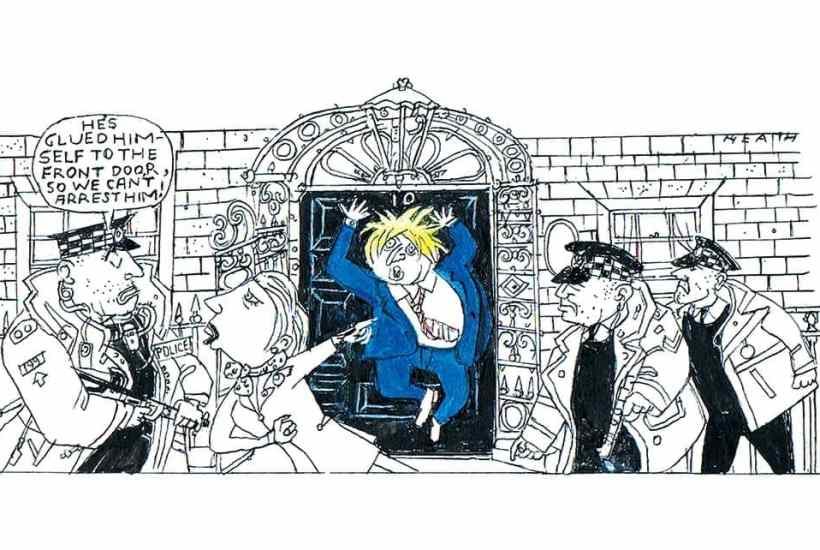
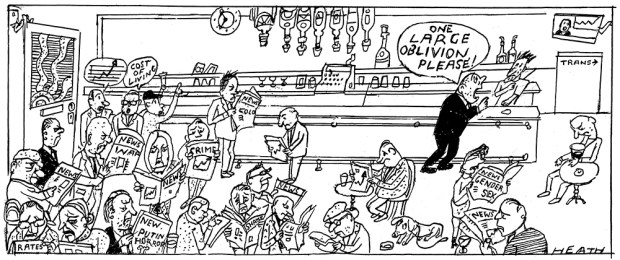
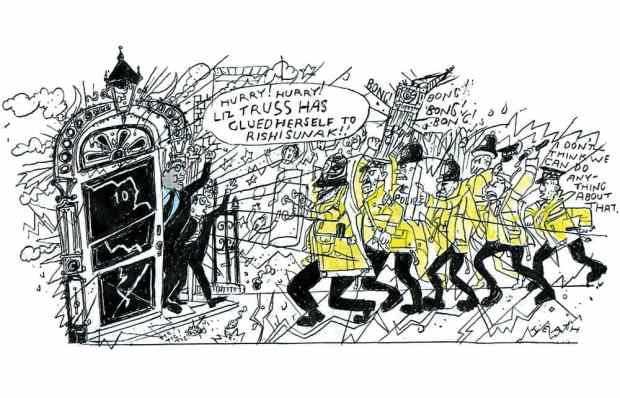
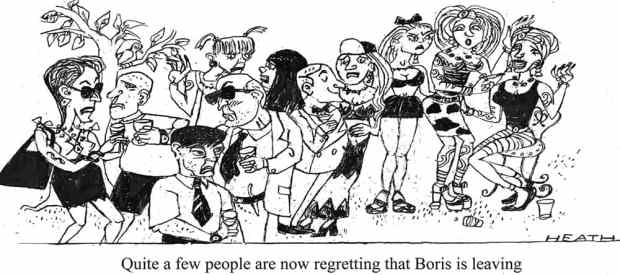
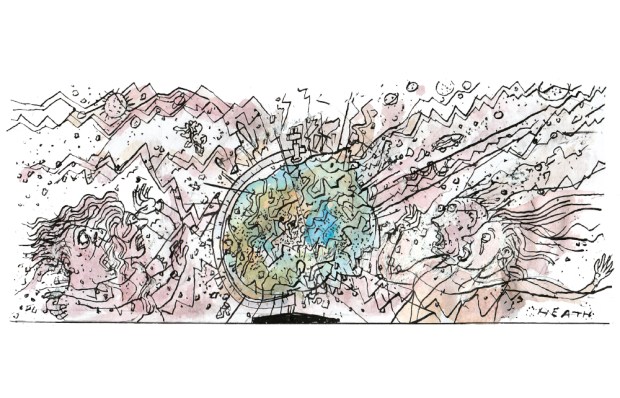
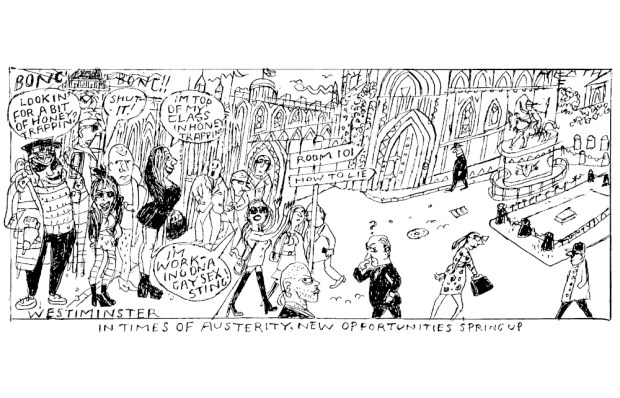
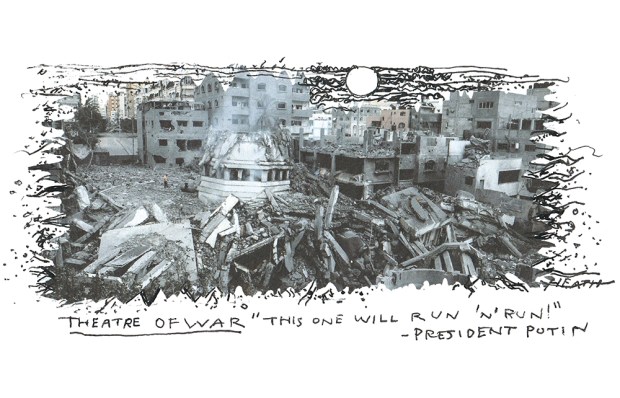






Comments
Don't miss out
Join the conversation with other Spectator Australia readers. Subscribe to leave a comment.
SUBSCRIBEAlready a subscriber? Log in